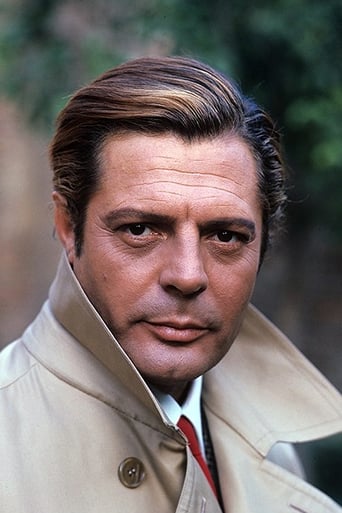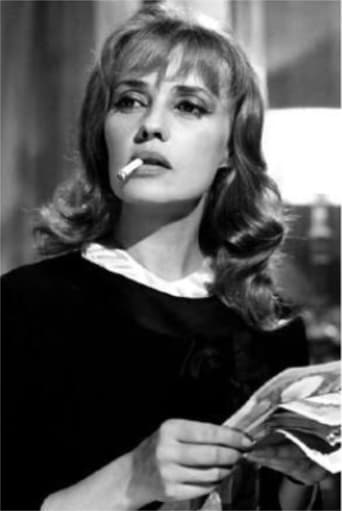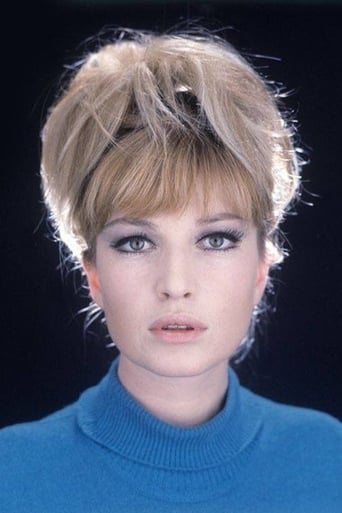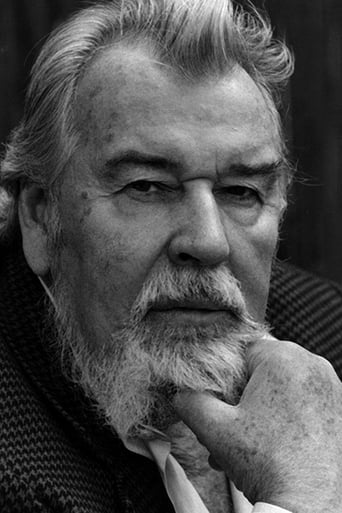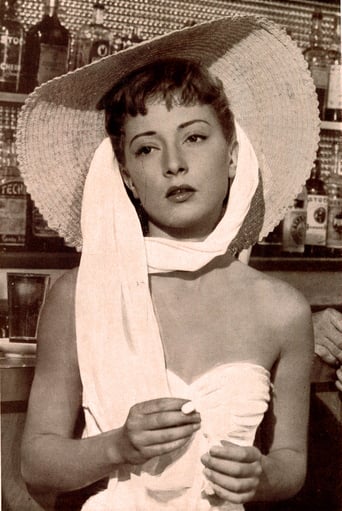SnoReptilePlenty
Memorable, crazy movie
Platicsco
Good story, Not enough for a whole film
Console
best movie i've ever seen.
Donald Seymour
This is one of the best movies I’ve seen in a very long time. You have to go and see this on the big screen.
adrian-43767
Of the famous Antonioni trilogy - L'avventura, L'eclisse, La Notte -- the latter was the last that I got to watch, and just possibly the best. Certainly the photography alone makes it worth watching, but it is the perceptive, finely tuned direction that stays with me, even more than the superb acting of Moreau in particular, and the astounding physical beauty of Mastroianni, Vitti and, of course, Moreau. The story, as usual with Antonioni, is told in bits and pieces, with details that do not seem related or important to the narrative -- the flying fireworks and attendant crowd, for instance --, sometimes soundless, sometimes loud, mimicking the difficulties of communication among humans, with distractions, deceptions, and aloofness.There are memorable sequences, above all when Moreau interrupts a street fight, and when Moreau and Vitti's boyfriend are alone in a car in the rain, suggesting an intimacy that Moreau probably never had with her own hubby, Mastroianni.There is an irony in Moreau's chastity and faithfulness to her husband, because it is well known that in real life Moreau was proud of the fact that she had sex with as many men as she could, and by age 45 she estimated she had bedded more than 1,000 men.Mastroianni is the loose soul and intellectual that I find tougher to fathom. He seems keen to seduce any woman he comes across, and certainly comes on strongly to Vitti, and makes passes at other females. He is apparently having writer's block but that is certainly not blocking his creative approach to women. It is this devious behavior in a central character that also gives this film a persistently devious touch, reminding one of the basic dishonesty of human nature.The ending provides a hint to the ending of Antonioni's next film, L'ECLISSE, moving away from the movie's leads and freezing on an inanimate scene.LA NOTTE is not to everyone's taste, but it reflects Antonioni's courage to produce work to meet his own high standards in terms of script, photography and direction, and I give it a well deserved 9 out of 10.
Christopher Culver
In the late 1950s and early 1960s, the Italian director Michelangelo Antonioni shot a series of films exploring the psychological torment of his bourgeois protagonists. In spite of the wealth and security they established, they had no idea what they wanted in life or what they were supposed to do. In spite of busy social lives, they found it impossible to truly connect with other people. LA NOTTE, from 1961, is one of these, and I think it's the very best of them.As the film opens, one morning in Milano, married couple Giovanni (Marcello Mastroianni) and Lidia (Jeanne Moreau) visit their friend Tomasso (Bernhard Wicki) in the hospital as he lays dying. Lidia is clearly shaken by the experience and, after Giovanni leaves for an appearance to promote his new book, the camera tracks Lidia through a long, aimless walk around Milano as she processes her thoughts. Here Antonioni (anticipating his later film Il Deserto Rosso) shows the drastically changing face of Milano in the postwar construction boom, and the appearance of new tech gadgetry in everyday life, as just one more way people can feel they have nothing certain they can hold on to in this world.Giovanni and Lidia, while never outright squabbling, have clearly grown cold towards each other. Gradually one begins to wonder if there is any life left in their marriage whatsoever. Things come to a head, however, when Giovanni and Lidia go that evening to a party at a rich industrialist's villa, and Antonioni's favourite actress Monica Vitti appears. Vitti's role as a foil to Giovanni and Lidia is powerful and moving, but I think its precise nature should be left unsaid here, as it's better audiences aren't spoiled first.A mere description of the plot might seem like nothing happens in this film besides bored people talking and yet another mid-century European cinematic tale of adultery. But LA NOTTE is a film of incredible visual poetry, almost like the work of Andrei Tarkovsky. Even scenes that evoke the characters' boredom are shot as such beautiful tableaux that the viewer is enraptured. Antonioni often shoots his characters reflected in mirrors and the like, and there is some cinematic legerdemain here that just makes you go "wow".Appearing in Antonioni's body of work between two similar films that are often considered a trilogy, LA NOTTE has often got less buzz than its predecessor L'AVVENTURA, with its daring plot twist, or its successor L'ECLISSE with its chic Monica Vitti-Alain Delon love affair. But I think that in terms of the picture-perfect visuals and elegant pacing, LA NOTTE deserves every bit as much praise as those other two classic films.
runamokprods
Challenging and emotionally muted on 1st viewing, I still found this largely a very interesting portrait of a bourgeois marriage crumbling, observed during one afternoon and night. The couple visit a seemingly dying friend in the hospital, attend a book signing for the husband's new novel, stop at a nightclub where they barely even react to an erotic floor show, and then head to a party for a rich industrialist who is celebrating the first win by his new racehorse, Both Marcello Mastroianni and Jeanne Moreau do terrific work as the deadened and estranged couple. He no longer even identifies with his own writing, feeling it's just a product, like that made by the industrialist. He's even lost his sense of lust. She no longer feels love for him, and seems locked in loneliness and depression. It's a tough movie to take, grim, humorless, almost as dead feeling as its leads, but that would seem to be the point. My only problem, as I've occasionally had with Antonioni, is that well before the end I felt I had gotten these themes clearly and powerfully, and there was, after that, a certain sense of hammering home ideas that had already been expressed beautifully with a lighter touch (there's a key reveal near the end that I saw coming a mile off). But the images (of course) are striking and memorable, as are the performances, and the sad gloom that hovers over this world of people who seem to have it all, and yet feel so little.
Framescourer
I found La Notte as absorbing as L'Avventura - that is to say that I had to work a bit with it. For all that La Notte is inherently more appealing in many ways (the incidents have an inherent urban interest, like documentary) it is a rather thin film. Whereas L'Avventura has the double drama of a thriller and the bizarre dissemination of that thriller, La Notte has very little interpersonal surface drama to speak of.The principal couple, Giovanni and Lidia are a study in middle-class ennui. Two parties form the contours of the film: the first, a celebration for Giovanni's new publication; the second, the Notte of the title - a gaudy, all-night affair thrown by the suburban nouveau riche in which various half-hearted amorous situations fizzle out for both. At surise, the couple address their stymied love in an ambiguous close to the movie.The urban sprawl as reflected in Milan's Pirelli building and underpinned with Giorgio Gaslini's otherworldly electronic sounds opens the film with a statement about modernism - not that it is bad but that it is Antonioni's subject, new, possibly impervious to investigation but certainly central and influential. Indeed existential impotence is a theme for Giovanni - his doppelganger, the lothario Roberto, is not good for anything at all but he does have a good car. Machines feature in this film, helicopters, a plane - the aforementioned car defers to a sleek train at a level crossing - and young men play with rockets in a sequence which also takes in a punch-up.Marcelo Mastroianni and Jean Moreau were clearly the chief practitioners of listless wandering around the early 1960s and do Antonioni's bidding capably here. Monica Vitti's strange cameo is relatively exciting although not entirely to the point. I liked the way in which Antonioni goes about collating his shots and symbols, and admire much of the choreography of the party. However, I'm not sure that in order to make a film about the ontological pain of being bored one has to bore one's audience as well. 4/10



